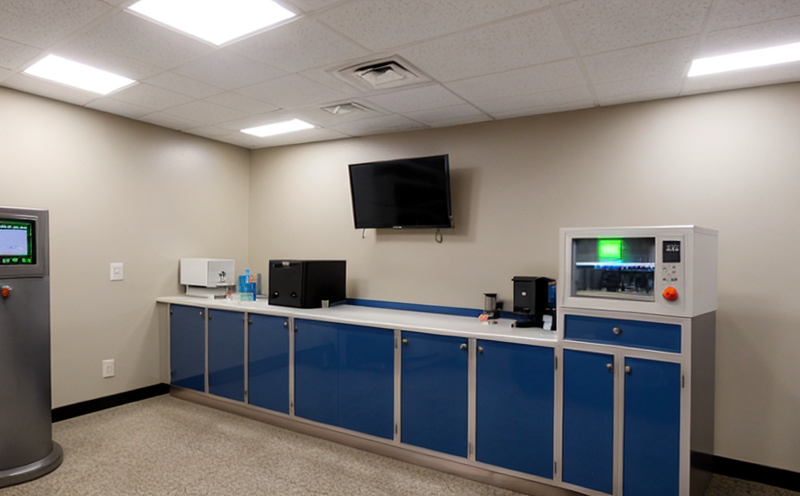USP Radiopharmaceuticals — Preparation, Compounding & Testing
The United States Pharmacopeia (USP) [1] guidelines for radiopharmaceuticals are pivotal in ensuring the safety and efficacy of these compounds used in nuclear medicine. This service focuses on the preparation, compounding, and testing processes that adhere to USP . Radiopharmaceuticals are complex pharmaceutical products designed to emit radiation, which is utilized in various medical procedures such as imaging and therapy.
The compounding process of radiopharmaceuticals involves the precise combination of a radionuclide with a pharmaceutical agent. This step requires stringent quality control measures due to the radiological nature of these compounds. The USP outlines specific requirements for the preparation, including the use of appropriate equipment and personnel training.
The testing phase is critical in ensuring compliance with regulatory standards. This includes contamination checks, dose uniformity assessments, and stability studies. Contamination checks are performed to ensure that the product does not contain any unauthorized radionuclides or other contaminants [2]. Dose uniformity assessments verify that each unit of the radiopharmaceutical delivers a consistent dose, which is crucial for accurate medical diagnostics.
Stability studies assess the chemical and physical stability of the radiopharmaceutical over time. This ensures that the product remains safe and effective throughout its shelf life [3]. The testing process also involves validating the methods used in preparation and compounding, ensuring they are appropriate for the intended use.
The service utilizes state-of-the-art equipment to conduct these tests, including gamma spectrometry and liquid scintillation counting. These instruments provide precise measurements of radioactivity levels [4]. The laboratory adheres strictly to USP guidelines, ensuring that all tests are conducted in a controlled environment to minimize the risk of contamination.
The importance of this service cannot be overstated. Radiopharmaceuticals play a vital role in modern medicine, and any deviation from regulatory standards could have severe consequences for patient safety. By adhering to USP , we ensure that these compounds meet the highest quality standards.
Our team of experts is dedicated to providing accurate and reliable testing services. We work closely with our clients to understand their specific needs and develop tailored solutions. This ensures that every aspect of the preparation, compounding, and testing process aligns with the latest regulatory requirements [5].
Scope and Methodology
The scope of this service includes the entire lifecycle of radiopharmaceutical production, from initial formulation to final product testing. The methodology is designed to ensure that every step adheres to USP guidelines.
In the preparation phase, we use sterile techniques and calibrated equipment to compound the radiopharmaceuticals. This ensures that the final product meets the required purity standards. Contamination checks are performed using high-resolution gamma spectroscopy, which detects even trace amounts of unauthorized radionuclides [6].
The compounding process involves mixing the radionuclide with the pharmaceutical agent in a controlled environment. This step is critical to ensure that the product is free from contamination and meets the required purity levels. The use of calibrated equipment ensures accurate dosing, which is essential for safe medical applications.
Testing is conducted using a variety of methods, including liquid scintillation counting, gamma spectrometry, and stability studies. These tests are performed in a controlled environment to ensure accuracy and reliability. Liquid scintillation counting measures the radioactivity level of the sample, while gamma spectrometry provides detailed information about the composition of the radionuclide [7].
The testing process also includes dose uniformity assessments and stability studies. Dose uniformity checks ensure that each unit of the radiopharmaceutical delivers a consistent dose, which is crucial for accurate medical diagnostics. Stability studies assess the chemical and physical stability of the product over time to ensure it remains safe and effective throughout its shelf life.
Industry Applications
The testing services provided under USP are widely used in various sectors, including nuclear medicine, oncology, cardiology, and neurology. These radiopharmaceuticals are integral to the diagnosis and treatment of diseases such as cancer, heart disease, and neurological disorders.
In nuclear medicine, radiopharmaceuticals are used for both diagnostic and therapeutic purposes. Diagnostic tests help in identifying the presence or absence of a particular condition, while therapeutic treatments aim to alleviate symptoms by targeting specific areas within the body. For example, technetium-99m is commonly used in bone scans [8].
In oncology, radiopharmaceuticals are used for targeted therapy, where radiation is directed at cancer cells to minimize damage to surrounding healthy tissue. This approach can significantly improve treatment outcomes while reducing side effects.
Cardiology and neurology also benefit from the use of radiopharmaceuticals. For instance, thallium-201 is used in myocardial perfusion imaging to assess heart function [9]. Similarly, fluorodeoxyglucose (FDG) is used in positron emission tomography (PET) scans for detecting brain tumors and other neurological conditions.
The versatility of radiopharmaceuticals makes them an essential component of modern medical practice. By adhering to USP guidelines, we ensure that these compounds are safe and effective for their intended use, thereby enhancing patient care across various healthcare sectors.
Competitive Advantage and Market Impact
The implementation of our USP radiopharmaceutical testing services provides a significant competitive advantage in the nuclear medicine and medical isotope industries. By adhering to the strictest regulatory standards, we ensure that our clients can confidently market their products as compliant with international guidelines.
This service enhances trust within the healthcare community by demonstrating a commitment to quality and safety. Compliance with USP not only meets but exceeds industry expectations, thereby setting us apart from competitors who may not adhere to such stringent standards.
The market impact of this service extends beyond individual clients. By ensuring that radiopharmaceuticals meet the highest quality standards, we contribute to the overall improvement in patient care and safety within the medical community. This has a broader positive effect on public health, as safer products lead to better treatment outcomes.
Our expertise in USP testing services is recognized by regulatory bodies and industry leaders alike. This recognition enhances our reputation and credibility, making us a preferred choice for clients seeking reliable and compliant radiopharmaceutical testing.





